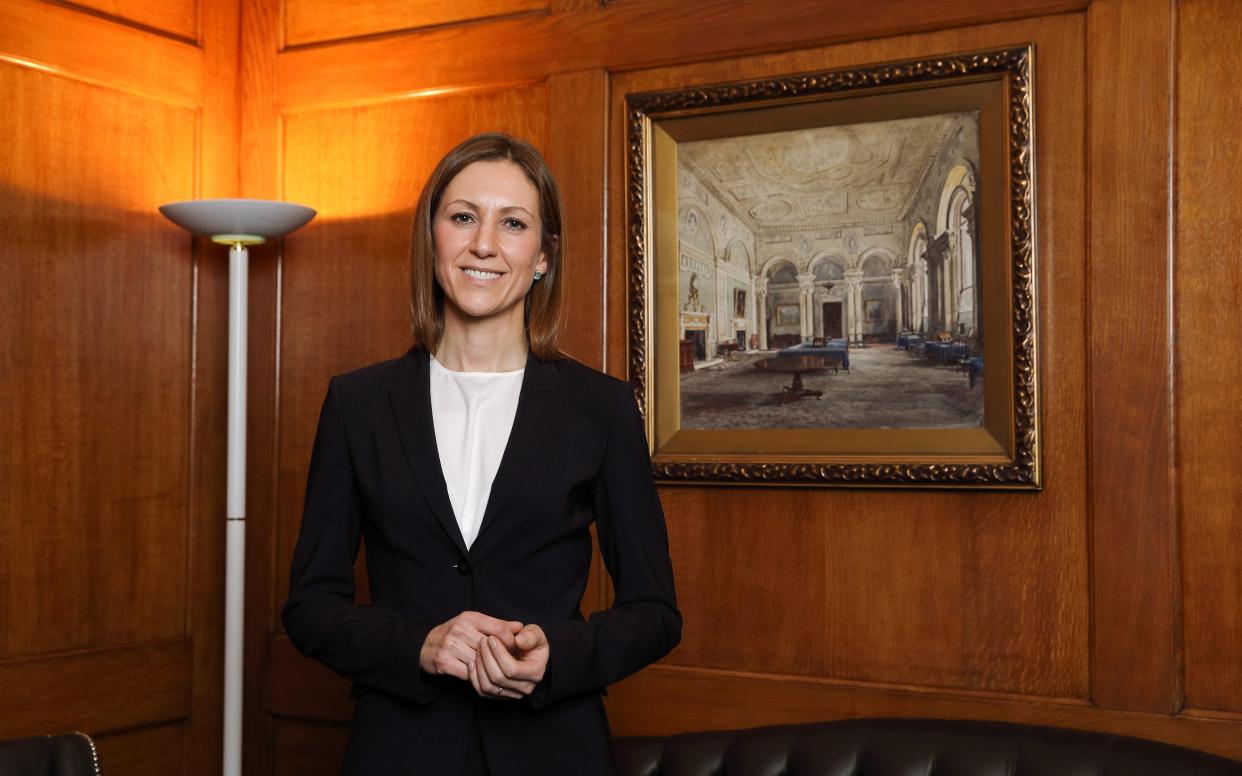Recovery will be ‘incomplete V’, says Bank rate-setter

Bank of England policymaker Silvana Tenreyro has said the UK’s Covid-19 recovery is likely to be an “incomplete V” as people and companies spend cautiously through the pandemic.
Ms Tenreyro expects a first big step-up in growth between July and September as shoppers shift their behaviour and unemployment climbs.
Her comments came after May’s GDP figures disappointed with growth of just 1.8pc over the month as lockdown restrictions were only gradually lifted.
The rate-setter’s assessment is far less bullish than that of her colleague Andy Haldane, the Bank’s chief economist, who claimed “so far, so V” on the shape of the recovery.
She said: “Behavioural responses mean that the UK economic outlook will continue to depend on the global and domestic spread of Covid-19. Assuming prevalence gradually falls, my central case forecast is for GDP to follow an interrupted or incomplete ‘V-shaped’ trajectory, with the first quarterly step-up in the third quarter.”
Ms Tenreyro suggested coronavirus would push down on inflation for some time, despite the Office for National Statistics’ figures showing a surprise uptick in inflation last month to 0.6pc – albeit still far below the Bank’s 2pc target.
The Monetary Policy Committee member voted along with the majority to pump an extra £100bn into the UK economy in June, pushing the total size of its quantitative easing programme to £735bn.
Despite the £160bn support of the Chancellor’s fiscal package, the economist said “we are likely to see disinflationary pressures for some time” due to behavioural shifts, fears of a second wave, and plummeting business investment. The temporary VAT cut that started this week for hospitality firms would add to the downward pressure, she added.
The ONS has been hampered by Covid-19 in its efforts to collect prices but June’s brief uptick in the Consumer Prices Index caught economists off guard.
Inflation is still close to four-year lows but was pushed higher by a surprise jump in computer games prices compared to last year thanks to the release of top-selling Playstation 4 game The Last of Us Part II. Lockdown has triggered a surge of spending on consoles and console games, pushing up prices in the overall recreation and leisure category 1.8pc on last year. Clothing and footwear prices also fell by far less than anticipated in June as shops reopened.
HSBC’s UK economist Chris Hare said the rise in inflation was likely to be temporary as the “Covid-19 shock is a disinflationary, rather than inflationary, one”.
He added: “For the Bank of England, the key point is that the underlying inflation picture is soft. And while our central case is not for any additional loosening in monetary policy, this soft price outlook could lean the MPC towards more action, particularly if downside risks to the outlook materialise.”
Alongside more QE, Threadneedle Street is also keeping tools such as negative interest rates under “active review” according to Governor Andrew Bailey.
The ONS also confirmed that the Chancellor’s Eat Out to Help Out scheme offering half price discounts of up to £10 would be included in August inflation figures, applying to restaurant meals, which make up around 3pc of the inflation basket. This, along with the temporary VAT, cut could push the CPI to an all-time low in August, economists have said.


